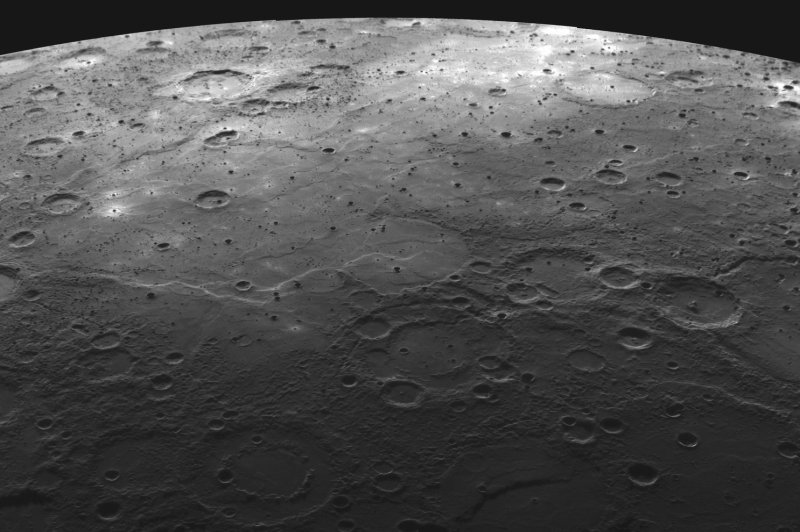This NASA image taken in October 2008 by the Messenger spacecraft shows the surface of Mercury. (UPI Photo/Jim Ross/NASA) |
License Photo
Mercury, already the solar system's smallest planet, is still shrinking, scientists say.
New imagery captured by NASA's MESSENGER, launched in 2004 and put into Mercury's orbit in 2011, shows that the planet closest to the sun has contracted by more than 4.3 miles during its four billion-plus years of existence -- much more than previously thought.
"With MESSENGER, we have now obtained images of the entire planet at high resolution and, crucially, at different angles to the sun that show features Mariner 10 could not in the 1970s," explained Steven Hauk II, lead author and a researcher at Case Western University.
Scientists had long hypothesized that as Mercury's iron core cooled, the planet would shrink, and like a grape turning into a raisin, the planet's skin (or mantle) would crinkle.
Another NASA spacecraft, the Mariner 10, confirmed as much in 1974 and '75, when it completed several flybys of Mercury, surveying roughly 45 percent of its surface. But new imagery, which completes a comprehensive documentation of the planet, shows more pronounced shrinkage.
"The features are the result of faults caused by compressional stresses that occur as a result of cooling and contraction as well as possible crystallization of the iron core in the interior of the planet," Hauk told the Christian Science Monitor.
The new imagery confirmed that Mercury's hard shell is continuous all the way around, and showed more detailed evidence of geographic formations, ridges and wrinkles. Documenting these formations helped scientists make a more accurate estimation of the planet's contraction.
The details of their findings were published on March 16 in the journal Nature Geoscience Sunday.
[Christian Science Monitor]















